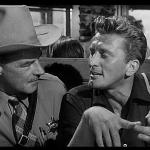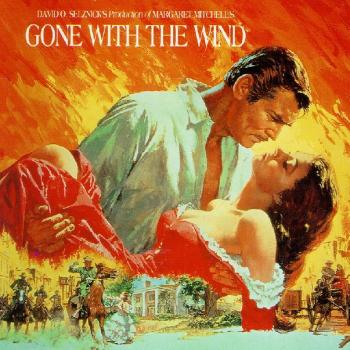
Source: Flickr user Tony Hoffarth
License
Toward the end of writer-director Cameron Crowe’s Almost Famous (2020) the teenage Rolling Stone reporter and the band he’s been following for most of the movie suddenly hit an electrical storm while flying around on tour. The mood, tinged by regret and failure before they leave, swings back to joviality only for the storm to coax confessions out of the imploding band. They hate each other. Each lets the others know they’ve slept with their wives and girlfriends. William Miller (Patrick Fugit), the rock journalist, castigates the vain lot for trading beloved groupie Penny Lane (Kate Hudson) for $50 and a case of beer, leaving her to die in quaalude-soaked vomit in a New York hotel room. One bandmember sings a Buddy Holly tune, broadcasting the hilarity of their would-be deaths. At last, the plane breaks out of the cloudy mess, and the pilot emerges tearfully exclaiming that they’ve (somehow) survived. But not before one member of Stillwater confesses that he is gay. This is played for laughs.
I am assured by you, my brothers and sisters, that I have gravely sinned by not believing this to be a heartwarming film. It must be the nostalgia. Almost Famous radiates the 90s variant of the 1970s: big sunglasses, hard-drinking musicians, and the beautiful, if inelegant, death of classic rock. Teens drop acid with rockstars who plunge from garage tops into swimming pools. Groupies philosophize about the moral and spiritual meaning of their profession. Our teenage hero goes on tour with a mid-level band in order to write a piece for the greatest magazine in the history of music criticism (citation needed, etc.) Can you imagine that kind of self-creative destruction, that lust for self-expressive liberty, now? William Miller may be an awkward nerd, but he’s not a total putz. Crowe’s work undoubtedly has appeal to the parts of each of us that wish we could want to go outside, feel the breeze and puke in our hair.
But then why did Almost Famous make me feel so bad? I don’t mind if a movie wrenches tears from my atrophied sense of sentimentality. There’s nothing wrong with getting a little sad. This movie, however, elicits feelings of nausea and confusion. My, admittedly exhausted, pitiful brain, had no idea what to make of what I’d just watched. Being “uncool” like his mentor, Lester Bangs (Philip Seymour Hoffman), William accepts his intransigent dorkiness. Stillwater flames out, victims of their own egotistical (never mind hypocritical) adventure into the dangerous stratosphere of rock stardom. William’s mom, both stern and extremely progressive, hates and then silently accepts her son’s transgressive, journalistic genius. She teaches college students, despises drugs, Paul Simon, Art Garfunkel, and conservatives. Could such a person actually exist? Did groupies really go full-on Socrates in between sessions with the guitarist?
Almost Famous is a good movie. Anything that can make me feel (even feel this demented) has to be “good” in some sense. It’s like the tube Penny gets shoved down her throat to induce vomiting: effective. The trouble is I’m not sure what it’s effective at; it clearly didn’t induce in me what it has in a generation of super fans, including Roger Ebert. I guess you could say it’s “almost good,” then. It’s formally successful without meaning anything, accomplishing any actual goal, just leaving me with the nausea of indecision and existential dread.
Good job, Cameron Crowe. But a piece of advice: don’t make a movie about how cooly un-cool you were as a teen. It’s tacky. Come to think of it—maybe that’s why the whole thing made me queasy.

















